Simple Substantial Economic Effect Regulatory Compliance: an Overview
Total Credits: 3 including 3 Taxes - Technical
- Average Rating:
- 22
- Categories:
- ACPEN Industry Institute | ACPEN Tax Institute | IRS Approved | Tax
- Faculty:
- David Randall Jenkins, Ph.D.
- Course Levels:
- Intermediate
- Duration:
- 3 Hours
- License:
Description
The Internal Revenue Service considers Section 704(b)’s substantial economic effect regulations among the most complex. This course teaches the Treasury Regulations enable simple compliance through (Per Capita: Balances: Ratios) capital account accounting method truncated transitivity, economic effect equivalence, and substantiality’s conclusive presumption. The partnership special allocations public policy mandate is made clear thereby: encourage going concern productivity while discouraging its abandonment.
This webcast involves Section 179 depreciation expense at the partnership level in a startup operation. Although not incorporated into this webcast, Dr. Jenkins wants to share his paper, "Why Section 179(b)(3)(A)'s Business Income Limitation Does Not Apply to Partnerships or S Corporations." The paper is currently in peer review at a university tax journal. Also, the ACPEN/BPN webcast based on this paper will be first aired during the week of September 25-29, 2017. Please be sure to look for that announcement and register for the webcast.
Syllabus
Lesson 1.
Partnership Special Allocation Substantial Economic Effect: History, Background, and Policy
Lesson 2.
Capital Account Accounting
Lesson 3.
Economic Effect’s Trinity
Lesson 4.
Simplified Substantiality Compliance: the Treas. Reg. Section 1.704-1(b)(2)(iii)(c)(2) Conclusive Presumption
Lesson 5.
Partnership Agreement Special Allocation Substantial Economic Effect Provisions
Lesson 6.
Crunching Some Numbers: Going Concern Capital Account Maintenance
Lesson 7.
Crunching Some Numbers: Liquidation Capital Account Maintenance
Basic Course Information
Learning Objectives*Recognize whether a transaction is correctly designed as consistent with Congress’s partnership special allocations productivity policies
*Recognize when a partnership agreement’s provisions correctly rebut the presumptive Per Capita method for purposes of determining a partner’s interest in the partnership
*Recognize the necessary partnership agreement provisions that correctly achieve (Per Capita: Balances: Ratios) capital account accounting method truncated transitivity
*Recognize the necessary partnership agreement provisions that correctly provide economic effect trinity’s elements
*Recognize the partnership agreement liquidation adjustment provisions necessary to correctly achieve economic effect equivalence
*Recognize substantiality’s conclusive presumption requires the partnership agreement correctly provide offsetting allocations that, in large part, occur more than five years after the originating allocation
*Recognize when a substantial economic effect financial forecast correctly shows there is a reasonable possibility the special allocation will affect substantially the dollar amounts to be received by the partners of the partnership, independent of tax consequences
Major Subjects
*The Interrelationship of Congress’s Special Allocations Productivity Policy and Accounting for Income Taxes Financial Accounting Policies
*Rebutting the Treasury Regulation’s presumptive Per Capita capital account accounting method
*Using (Per Capita: Balances: Ratios) Capital Account Accounting Method Truncated Transitivity to Moot the Insubstantiality Tests
*Economic Effect’s Trinity
*Economic Effect Equivalence Liquidation Adjustments
*The Simplicity of Substantiality’s Conclusive Presumption
*Sample Partnership Agreement Special Allocation Substantial Economic Effect Provisions
*Creating a Substantiality Reasonable Possibility Showing Financial Forecast
Course Materials
| Important CPE Credit Instructions_READ BEFORE WEBCAST UPDATED (0.47 MB) | Available after Purchase | ||
| Simple Substantial Economic Effect Regulatory Compliance_Q&A (0.01 MB) | Available after Purchase | ||
| Simple Substantial Economic Effect Regulatory Compliance_Slides (2.20 MB) | Available after Purchase | ||
| Simple Substantial Economic Effect Regulatory Compliance_Jenkins_Credentials (0.09 MB) | 5 Pages | Available after Purchase |
| Simple Substantial Economic Effect Regulatory Compliance_Partnership Agreement Handout (0.08 MB) | Available after Purchase | ||
| Simple Substantial Economic Effect Regulatory Compliance_Glossary Handout (0.04 MB) | Available after Purchase | ||
| Simple Substantial Economic Effect Regulatory Compliance_Reasonable Possibility Showing Handout (0.15 MB) | Available after Purchase | ||
| Simple Substantial Economic Effect Regulatory Compliance_Article Handout (0.87 MB) | Available after Purchase | ||
| Article_Why Section179(b)(3)(A)'s Business Income Limitation Does Not Apply to Partnerships and S Corporations (0.20 MB) | Available after Purchase | ||
| IRS CE Credit Request Form (0.15 MB) | Available after Purchase | ||
Faculty

David Randall Jenkins, Ph.D. Related Seminars and Products
David Randall Jenkins, Ph.D., received his doctorate in accounting and a master’s in accounting with an emphasis in tax from the University of Arizona. He has taught financial, managerial, and tax accounting courses at both the graduate and undergraduate levels. Dr. Jenkins is an AACSB academically qualified business school and tax professor owing to his peer reviewed journal article publications. His company, Algorithm LLC (algorithm-llc.com), is an IRS Approved Continuing Education Provider. Dr. Jenkins may be contacted at tucjenkins@aol.com.
Additional Info
Basic Course Information
Advanced PreparationPurchase and read journal article relating to course, and Review the Course Materials.
Course Developer
David Randall Jenkins
Date Added to Catalog
07/31/2015
Designed For
CPAs, Attorneys, , Enrolled Agents, Other Tax Professionals
Original Recording Date
08/03/2015
Prerequisites
Participants in this lecture should have some basic understanding of: Partnership capital account accounting, Partnership capital account account methods, and Partnership tax law.
Yellow Book
No
Additional Information
Complaint Resolution PolicyPlease contact Anne Taylor for any complaints. anne.taylor@acpen.com, (972-377-8199).
Instructional Delivery Method
Group Internet Based
Official Registry Statement
Business Professionals' Network, Inc. is registered with the National Association of State Boards of Accountancy (NASBA) as a sponsor of continuing professional education on the National Registry of CPE Sponsors. State boards of accountancy have final authority on the acceptance of individual courses for CPE credit. Complaints regarding registered sponsors may be submitted to the National Registry of CPE Sponsors through its website: www.nasbaregistry.org
Course Registration Requirements
Online Registration
Refund/Cancellation Policy
Please contact the ACPEN help desk 1-877-602-9877 or help@acpen.com if you wish to cancel your attendance for a previously purchased webcast and are requesting a refund or transfer.
Promo Video
Reviews
| 5 |
|
| 4 |
|
| 3 |
|
| 2 |
|
| 1 |
|


